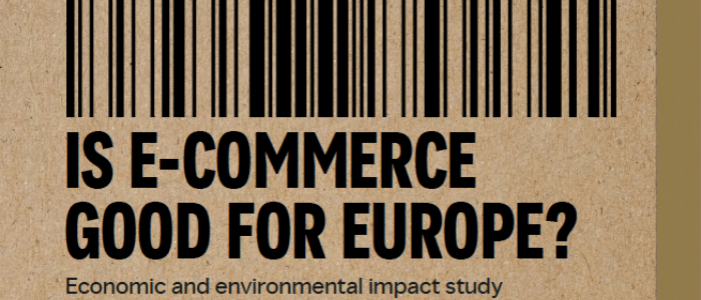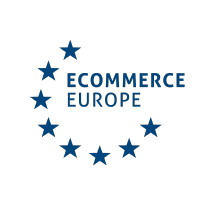Rethinking the economic and environmental impact of e-commerce: a new study on e-commerce impact in Europe

Through its double-digit growth over the past two decades, the e-commerce sector continues to transform the retail sector and to shape the European economy. The COVID-19 crisis has accelerated some of these changes, as e-commerce enabled the continuation of economic activities in Europe. The accelerated digital transformation has led to changes in consumer behaviour and the development or growth of seamless commerce solutions – from payments to omnichannel logistics solutions such as contactless click-and-collect.
It is therefore more important than ever to try to better understand the impact of e-commerce on our economy, and very importantly, on the environment and our transition to more sustainable models. In an independent study launched today, which was conducted by Oliver Wyman and the St Gallen University and commissioned by Amazon, the economic and environmental impact of e-commerce is thoroughly analysed, proposing new lines of approach to look at these evolutions. The study gathers and consolidates a large amount of public data, and bridges some of the knowledge gap through several new surveys, as well as a new CO2 equivalent (CO2e) calculation models, bringing a new light on topics that until now lacked concrete figures[1].
The e-commerce sector is a bridge between the digitisation of our society and the transition to a more sustainable economy. In order to make the right choices and leverage the opportunities offered by the sector, this needs to be fully taken into account.
Ecommerce Europe believes that the best way to ensure the uptake of sustainable practices is to look at retail as a whole, where online and offline retail complement each other. The distinction has faded in practice, with seamless commerce becoming the norm across the world. According to the report, organised physical retailers going omnichannel accounted for 20 percent of the growth in online sales from 2010 to 2019 across the UK, France, Germany and Italy.
The study proposes a new CO2 impact model that offers new ways to look at the environmental impact of retail, taking into account a large variety of factors, such as transportation, packaging or energy consumed by buildings (e.g., stores and logistic centres)[2]. The results show a more balanced image of the impact of digital commerce in terms of CO2 equivalent (CO2e) emissions, supporting the idea that the most sustainable practices and choices require the availability of a mix of options and information. The study highlights that the differences between product categories in terms of CO2e emissions are driven by store productivity, distance of travel to the store, return rates and weight of packaging, and therefore tries to reflect and encompass other variables such as the impact of consumer behaviour. The study shows, for example, that in the eight countries taken as a whole, CO2e emissions are similar when a book or a consumer electronics product is bought online or in a physical store accessed on foot (about 700 g CO2e in each case). As another example, a fashion product bought by walking to a store still causes 2.0 the emissions as when it is bought online – mostly due to the store building’s energy consumption (heating and lighting related to the space required to access and display products). The study also sheds lights on the debate on traffic generated by e-commerce in European cities, showing that e-commerce saves 4 to 9 times the traffic it generates, and that deliveries to consumers only represents 0,5% of the total traffic in urban areas.
Ecommerce Europe believes that further research such as this one, demystifying certain preconceived ideas on e-commerce, are vital to guide retailers as they embrace the transition towards a carbon-neutral industry and to develop a sound and fact-based legislative framework to accompany our transition to a sustainable economy.
Download the full report and the executive summary here.
[1] To answer the question, Oliver Wyman and LAE conducted a pan-European (covering France, Germany, Italy, the Netherlands, Poland, Spain, Sweden and the United Kingdom) study that included: Analysis of official statistics from Eurostat, Euromonitor, and national statistics institutes; an independent retailer survey2; consumer surveys3; and the development of a CO2e impact model.
[2] This report evaluates the impact of retail in terms of end-to-end CO2 equivalent, or CO2e. The scope of the model is the journey from the factory to the home, including drivers that differ between e-commerce and physical retail, such as transportation, packaging, and the energy consumed by buildings
About Ecommerce Europe
Ecommerce Europe is the sole voice of the European Digital Commerce sector. As a result of joining forces with EMOTA, Ecommerce Europe now represents, via its 23 national associations, more than 100,000 companies selling goods and services online to consumers in Europe. Ecommerce Europe acts at European level to help legislators create a better framework for online merchants, so that their sales can grow further.
Website: www.ecommerce-europe.eu

